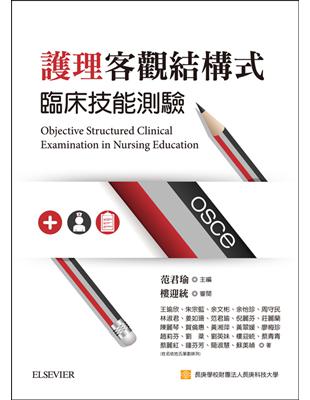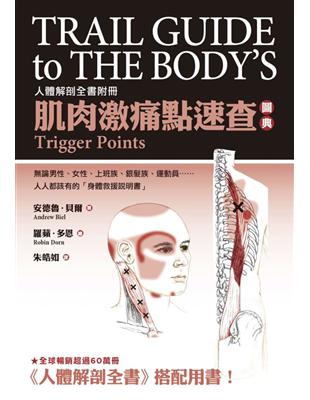
Problem-focused psychodynamic psychotherapy /Fredric N. Busch.
紀錄類型 : 書目-語言資料,印刷品: 單行本
作者 : Busch, Fredric N.,
出版項 : Washington, DC :American Psychiatric Association Publishing,[2022]
面頁冊數 : xiv, 162 pages ; 23 cm.
內容註 : Developing a problem list -- Using psychodynamic techniques -- Examining the context, emotions, and developmental history contributing to problems -- Developing a psychodynamic formulation -- Addressing problems : a framework -- Addressing the role of adverse and traumatic experiences in problems -- Addressing personality disorders -- Integrating dissociated aspects of self and other representations -- Working through -- Managing termination.
簡介 : "Whereas psychoanalysis and psychodynamic therapy have traditionally avoided focusing too much on specific symptoms or problems-lest they interfere with free association-this new guide articulates the value of more active and symptom-focused interventions. Having worked on focused psychodynamic treatments of panic disorder, depression, trauma, and behavioral change, Fredric Busch, M.D. expands on that work here, articulating how a focused approach can be adapted for patients in general. Drawing on a wealth of case vignettes, the book describes how to apply Problem-Focused Psychodynamic Psychotherapy (PrFPP) to symptoms, personality issues, behavioral problems, and relationship difficulties. It provides novice and experienced clinicians alike with the tools they need to help patients identify problem areas and understand how specific dynamics emerge in different contexts and overlap in contributing to issues. The psychodynamic techniques readers will glean in these pages demonstrate how to rapidly address core difficulties, expanding patients' self-reflective capacities and the identification of their own dynamics-even in the case of short-term interventions"--
標題 : Psychotherapy, Psychodynamic -
版本 : First edition.
ISBN : 9781615373246
LEADER 02553cam a22003018i 4500
001 59087
005 20211204014050.0
008 210506s2022 dcu b 001 0 eng
010 $a 2021021475
020 $a9781615373246$q(paperback ;$qalk. paper)
020 $z9781615373857$q(ebook)
035 $9101778909
035 $a9917789093406676
040 $aDNLM/DLC$beng$erda$cDLC
041 0 $aeng
042 $apcc
044 $9United States
060 00$aWM 420.5.P75
100 1 $aBusch, Fredric N.,$d1958-$eauthor.$3111854
245 10$aProblem-focused psychodynamic psychotherapy /$cFredric N. Busch.
250 $aFirst edition.
263 $a2108
264 1$aWashington, DC :$bAmerican Psychiatric Association Publishing,$c[2022]
300 $axiv, 162 pages ; 23 cm.
336 $atext$btxt$2rdacontent
337 $aunmediated$bn$2rdamedia
338 $avolume$bnc$2rdacarrier
504 $aIncludes bibliographical references and index.
505 0 $aDeveloping a problem list -- Using psychodynamic techniques -- Examining the context, emotions, and developmental history contributing to problems -- Developing a psychodynamic formulation -- Addressing problems : a framework -- Addressing the role of adverse and traumatic experiences in problems -- Addressing personality disorders -- Integrating dissociated aspects of self and other representations -- Working through -- Managing termination.
520 $a"Whereas psychoanalysis and psychodynamic therapy have traditionally avoided focusing too much on specific symptoms or problems-lest they interfere with free association-this new guide articulates the value of more active and symptom-focused interventions. Having worked on focused psychodynamic treatments of panic disorder, depression, trauma, and behavioral change, Fredric Busch, M.D. expands on that work here, articulating how a focused approach can be adapted for patients in general. Drawing on a wealth of case vignettes, the book describes how to apply Problem-Focused Psychodynamic Psychotherapy (PrFPP) to symptoms, personality issues, behavioral problems, and relationship difficulties. It provides novice and experienced clinicians alike with the tools they need to help patients identify problem areas and understand how specific dynamics emerge in different contexts and overlap in contributing to issues. The psychodynamic techniques readers will glean in these pages demonstrate how to rapidly address core difficulties, expanding patients' self-reflective capacities and the identification of their own dynamics-even in the case of short-term interventions"--$cProvided by publisher.
650 12$aPsychotherapy, Psychodynamic$370392
650 22$aPsychotherapy, Brief$313982
710 2 $aAmerican Psychiatric Association Publishing,$eissuing body.$369461
Problem-focused psychodynamic psychotherapy /Fredric N. Busch. - First edition. - xiv, 162 pages ; 23 cm.
Includes bibliographical references and index.
Developing a problem list -- Using psychodynamic techniques -- Examining the context, emotions, and developmental history contributing to problems -- Developing a psychodynamic formulation -- Addressing problems : a framework -- Addressing the role of adverse and traumatic experiences in problems -- Addressing personality disorders -- Integrating dissociated aspects of self and other representations -- Working through -- Managing termination.
"Whereas psychoanalysis and psychodynamic therapy have traditionally avoided focusing too much on specific symptoms or problems-lest they interfere with free association-this new guide articulates the value of more active and symptom-focused interventions. Having worked on focused psychodynamic treatments of panic disorder, depression, trauma, and behavioral change, Fredric Busch, M.D. expands on that work here, articulating how a focused approach can be adapted for patients in general. Drawing on a wealth of case vignettes, the book describes how to apply Problem-Focused Psychodynamic Psychotherapy (PrFPP) to symptoms, personality issues, behavioral problems, and relationship difficulties. It provides novice and experienced clinicians alike with the tools they need to help patients identify problem areas and understand how specific dynamics emerge in different contexts and overlap in contributing to issues. The psychodynamic techniques readers will glean in these pages demonstrate how to rapidly address core difficulties, expanding patients' self-reflective capacities and the identification of their own dynamics-even in the case of short-term interventions"--
ISBN: 9781615373246
LCCN: 2021021475Subjects--Topical Terms:
70392
Psychotherapy, Psychodynamic
National Library of Medicine Call No.: WM 420.5.P75
- 館藏(1)
- 心得(0)
- 標籤
- 相同喜好的讀者(0)
- 相關資料(0)









